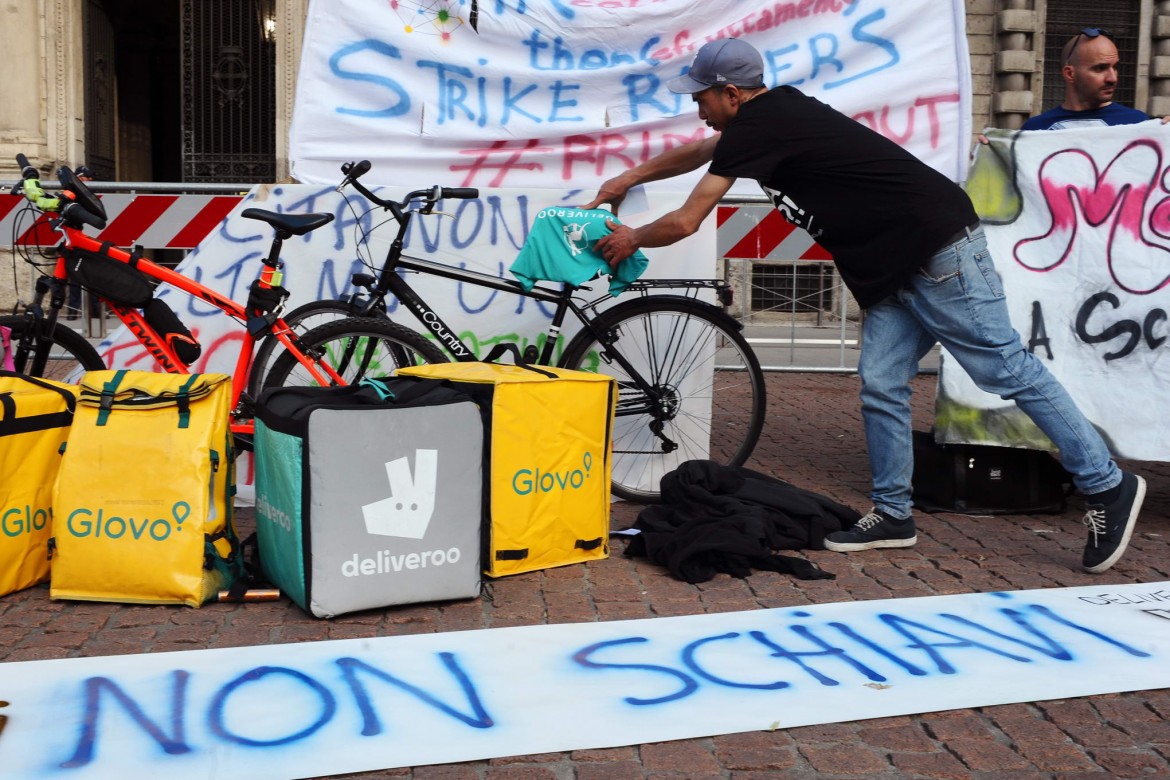Report
Oxfam: gig economy sentences a third of young Italian workers to starvation wages
Young people in Italy are condemned to long hours and low pay in jobs that don’t correspond to their expectations. ‘These people earn practically nothing in an economy that is based on the precariousness of underpaid and fragmented jobs.’

Italy is a “stuck country” where “inequalities are perpetuated” from one generation to the next. As of mid-2019, the share of wealth held by the richest 1% in Italy was bigger than the share held by the poorest 70%.
This is according to the data from “Disuguitalia” (“Inequitaly”), a supplement that accompanies the “Time to care – Avere cura di noi” report published by Oxfam on the eve of the Davos summit: “It takes five generations for the descendants of those from the poorest 10% to reach the national average income.”
In this topsy-turvy society, one-third of the children of the poorest parents are destined to remain at the lowest income level (the bracket including the poorest 20% of the population), while 58% of those whose parents belong to the richest 40% will remain in the higher part of the income distribution.
For a couple of generations, employment has been given a socially central role, as it was believed to play the role of “social escalator”—however, the data shows that this notion is now discredited. Those among the youngest, and even among the less young, who are venturing into the “labor market” nowadays with the legitimate aspiration to find qualified work are forced to face the consequences of a profoundly unjust and unequal form of social organization.
This takes the form of the meager incomes available to those working jobs that no longer correspond to the expectations handed down to the newest generations. According to Oxfam, 30% of young people in employment today earn less than €800 gross per month.
According to Elisa Bacciotti, campaign director of Oxfam Italy, this situation corresponds to the rise of the so-called “gig economy”: “These people earn practically nothing in an economy that is based on the precariousness of underpaid and fragmented jobs,” she tells il manifesto. “In this economy, the employment levels recorded by statistics seem to be increasing, but the jobs mapped out using the criteria established some years ago are much poorer and do not produce income. There is a need to put the dignity of workers back at the center, with more contractual protections and the right to remuneration.”
More than 13% of Italians under 29 are experiencing working poverty. “Many—too many—young people neither study nor work, or work for a ridiculous salary, and are thinking about leaving in search of a better future.” The heart of the problem is schooling and education. “Early school abandonment affects both income inequality and life opportunities,” Bacciotti continues.
“It is necessary to go back to investing decisively in the public education system, which doesn’t just mean classrooms and teachers in the compulsory education cycles, but also guidance services and the fight against early school abandonment during the bridge years, in the transition from one cycle of studies to another. There is only fragmented investment in guidance and in the transition between school and work. This is another of the roots of inequality.”
In 2018, 11.1% of Italian women did not work at all in order to take care of their children. This figure is higher than the European average (3.7%), and almost one in two mothers between 18 and 64 years old (38.2%) with children under 15 was forced to change the balance between work and family life in order to accommodate work requirements. This percentage is more than three times higher than in the case of men.
As for unpaid care work, which was the main topic of the analysis found in this year’s report, it should be considered as part of the increasing demand for lower paid or underpaid work that will only grow in the next decade.
Just like riders, carers and care workers are included among the wide range of these activities. “By 2030, 2.3 billion people will need assistance, 200 million more than in 2015,” Bacciotti says. “It is urgent for governments to make use of fiscal and public spending policies to find the resources needed to free women from these demands and fight inequality and poverty.”
Originally published at https://ilmanifesto.it/oxfam-diritti-e-tutele-contro-un-lavoro-da-fame-in-italia/ on 2020-01-21
